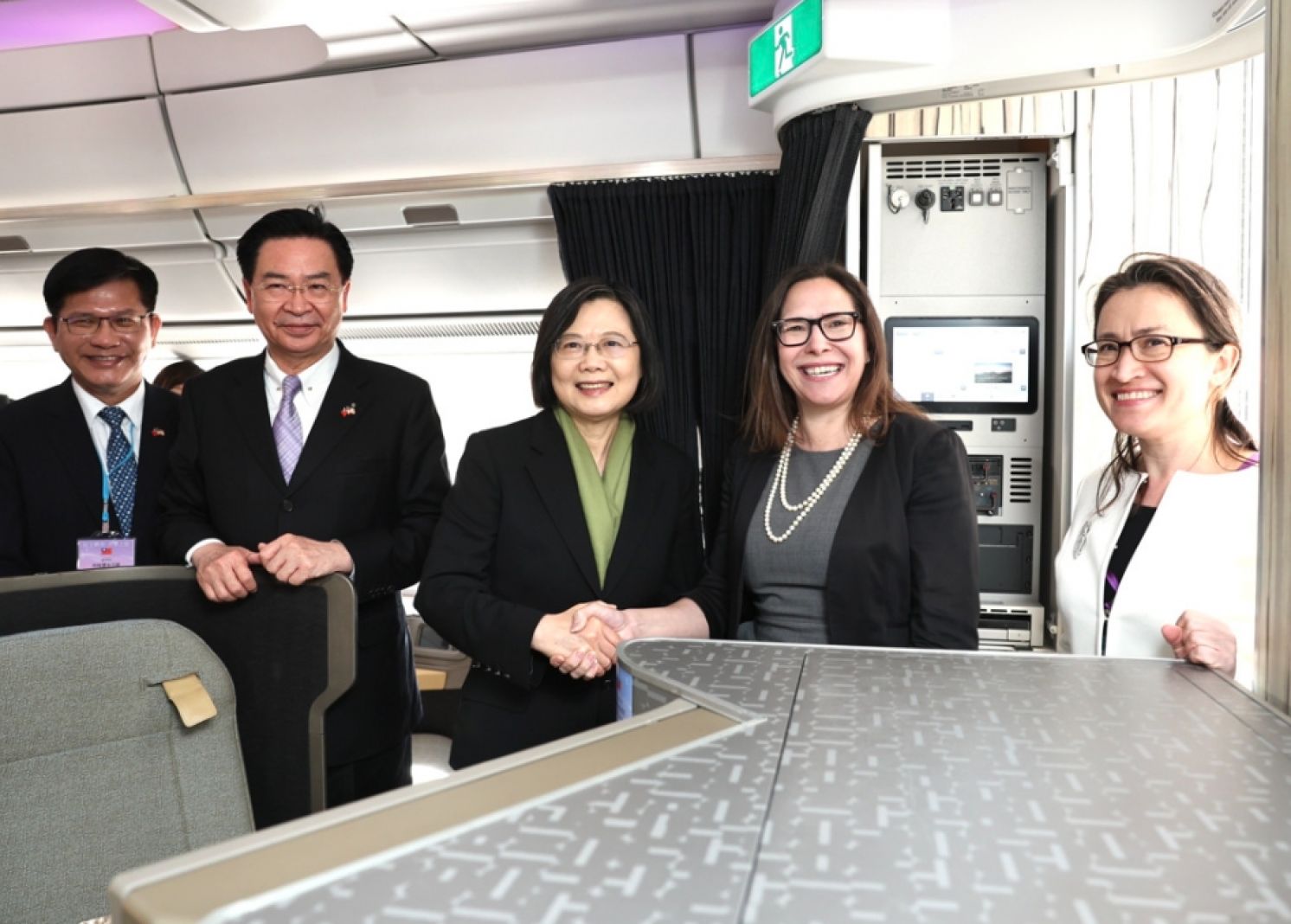
Gone Too Far, President Tsai's Unspeakable Miseries During U.S. Stopover
By Dale Jieh
China Times, March 30, 2023
It was highly expected that President Tsai Ing-wen, en route on her official visit to Central America, could transit through Washington and speak before the United States Congress. However, the U.S. Department of State suddenly cancelled the planned media briefing on Tsai’s transit just 40 minutes before her departure, causing shock and speculation. It was as if President Tsai were on a roller coaster ride, as her itinerary was kept confidential and her schedule in New York was only announced upon arrival. Why did she make her trip so secretive?
Compared to the previous six trips with scheduled public speeches taken to the United States during her tenure, President Tsai Ing-wen was very cautious and tight-lipped about the details of her transit itinerary this time, as was Minister of Foreign Affairs Joseph Wu. Both were very careful in disclosing any information about the transit program arrangements. President Tsai's airport remarks before takeoff and after landing in New York were also devoid of any concrete content or effect. Minister Wu, when asked by reporters if President Tsai would meet with former Secretary of State Mike Pompeo and Speaker Kevin McCarthy of the U.S. House of Representatives on the charter plane, could only smile wryly and pretended he didn’t know who the reporters were asking about. This unusually low-key and embarrassing behavior came off as awkward. Could it be that they were under pressure or some kind of indication from someone?
Juxtaposing the silence of President Tsai and Minister Wu, the United States has made an official statement to the media about the arrangements surrounding the transit, such as: the nature of the visit, politicians who President Tsai will meet, and how it differs from previous trips. Spokesman Ned Price of the State Department stated that it is not the first time for President Tsai to travel through the United States, and there are many precedents to follow. Additionally, President Tsai's visit is private in nature; U.S. officials will not meet with her. President Tsai's transit through the United States is neither new nor a breakthrough, and fully complies with the long-standing “One China” policy of the United States. The the core of all issues is to maintain the status quo, and the U.S. approach is consistent with the current “One China” policy. These statements not only implicate that the Biden administration deliberately avoided creating new problems from this trip, but also compressed the space for political publicity that the Tsai administration had originally set for this transit as a "new breakthrough in the U.S.-Taiwan relations."
Despite the fact that the United States is trying to downplay the visit, President Tsai’s meetings with Mr. Pompeo and Speaker McCarthy respectively may still spark a backlash from Beijing. Only if the meetings are held behind closed doors, the situation is controllable. If they are conducted publicly and in a high-profile manner, it could create issues, especially the meeting with Speaker McCarthy. It could be seen as a provocation by mainland China and could escalate the opposition and confrontation between the United States and China, even leading to higher tensions across the Taiwan Strait.
Spokeswoman Zhu Fenglian of the Taiwan Affairs Office of mainland China’s State Council has already stated in advance that "should a meeting between Tsai and McCarthy take place during the so-called ‘transit,’ it will be seen as a provocation that seriously violates the ‘One China’ principle, undermines China's sovereignty and territorial integrity, and damages the peace and stability across the Taiwan Strait. China firmly opposes this and will resolutely respond with countermeasures." China's tough stance will not be ignored by the United States, especially after the telephone conversation between Wang Yi and Jake Sullivan regarding the visit, and both sides have prevented the situation from getting out of control. After all, the high cost paid by the United States for President Tsai's transit through the United States does not serve American interests. From another perspective, mainland China may seize this opportunity of President Tsai's transit to make some corresponding requests to the United States. Therefore, there may still be variables in President Tsai’s meetings with Mr. Pompeo and Speaker McCarthy. In this case, President Tsai’s visit has once again become a bargaining chip in the U.S.-China power struggle. It is pathetic that President Tsai may not have much room to voice her opinion.
Over the past few decades, no Taiwan leader, from former President Lee Teng-hui to President Tsai, has frequently traveled through the United States without causing major political crises. However, given the sour relations between China and the United States and the even worse cross-strait relations, President Tsai's transit through the United States this time is truly risky. The Tsai administration must be aware of the high risk involved in the trip, especially the meeting with Speaker McCarthy, which could lead to uncontrollable crisis. Is it necessary to stake the safety and property of the 23 million people in Taiwan on an unrealistic political gesture? In contrast, former President Ma Ying-jeou, who is currently visiting the mainland, spares no efforts for promoting peace and avoiding conflict across the Taiwan Strait. It is self-evident who truly loves Taiwan.
From: https://www.chinatimes.com/opinion/20230330005840-262104